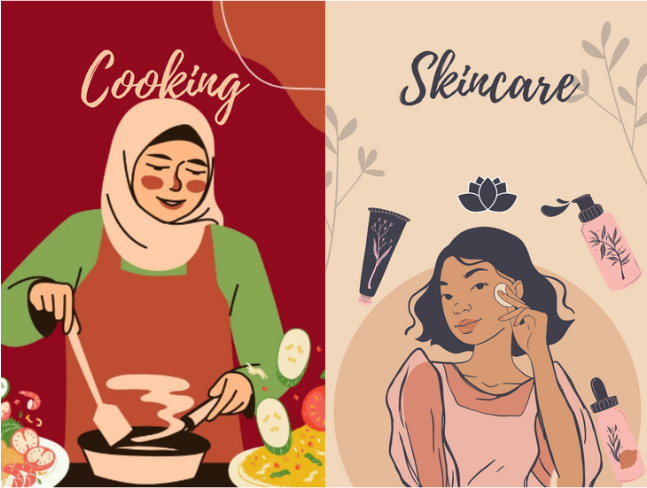Olive Oil in Cooking and Skincare
Introduction
Olive oil has become a household staple for both culinary and beauty routines, celebrated for its versatility and rich nutrient profile. Used since ancient times, this oil is now an integral part of Mediterranean diets and modern skincare due to its health benefits and nourishing qualities. This article explores how olive oil functions in both cooking and skin care, the specific types best suited for each use, and its unique benefits across both domains. Whether you’re drizzling it over a salad or applying it to your skin, understanding the distinct benefits and proper usage of olive oil is key to maximizing its potential.
Olive oil varies significantly in types and qualities, each with a different production process, flavor, and nutrient content that affects its suitability for cooking or skin care. By examining olive oil’s composition, we can understand why some types are optimal for low-heat cooking, while others shine as moisturizers for the skin. This article will guide you through the essentials, comparing cooking vs. skincare applications, practical usage tips, and common myths surrounding this liquid gold.
Types of Olive Oil: Understanding the Basics
Not all olive oils are created equal. Each type differs in processing, flavor, acidity, and nutritional content, impacting its role in cooking and skincare. Here’s a breakdown of the main types:
| Type of Olive Oil | Description | Ideal Use | Pros | Cons |
| Extra Virgin Olive Oil (EVOO) | Cold-pressed, unrefined, highest quality | Low-heat cooking, skincare | Rich in antioxidants, high-flavor | Low smoke point, costly |
| Virgin Olive Oil | Slightly lower quality than EVOO | Cooking, skincare (selective) | Moderate flavor retains nutrients | Limited availability, lower smoke point |
| Pure Olive Oil | Refined and blended, mild flavor | High-heat cooking | The higher smoke point, economical | Lower in nutrients, less flavor |
| Olive Pomace Oil | Extracted from olive pulp, refined | Industrial cooking | Cheapest, stable at high temps | Least nutritional, not for skincare |
1. Extra Virgin Olive Oil (EVOO)
EVOO is the highest quality of olive oil, made by cold-pressing olives without heat or chemicals. With its rich flavor and high antioxidant content, EVOO is ideal for dishes that don’t require high heat, such as dressings and dips. Its high polyphenol content also makes it beneficial for skincare, as it can combat oxidative stress on the skin.
2. Virgin Olive Oil
Similar to EVOO but slightly lower in quality, virgin olive oil is less common in stores. It’s suitable for some cooking applications and can sometimes be used in skincare but lacks the rich flavor and antioxidant levels of EVOO.
3. Pure Olive Oil
A mix of refined olive oil and a small percentage of virgin oil, pure olive oil is often used for high-heat cooking. It has a more neutral taste, is lower in antioxidants, and is not typically suitable for skincare due to its refined nature.
4. Olive Pomace Oil
The lowest grade, olive pomace oil is extracted from the remaining olive pulp after the first pressing. It undergoes significant processing, making it suitable only for industrial cooking and not advisable for skincare.
Nutritional Profile and Benefits of Olive Oil in Cooking
Olive oil is a rich source of healthy fats and nutrients that support overall well-being when incorporated into a balanced diet.
Nutritional Composition
Olive oil primarily consists of monounsaturated fats, with smaller amounts of saturated and polyunsaturated fats. Here’s a snapshot of the nutritional content per 1 tablespoon (about 13.5 grams) of olive oil:
| Nutrient | Amount per 1 tbsp | Benefit for Cooking |
| Calories | 119 | Energy source |
| Total Fat | 13.5 g | Supports satiety and nutrient absorption |
| Monounsaturated Fats | 9.8 g | Heart-healthy fat |
| Polyphenols | 50-500 mg (varies) | Anti-inflammatory, antioxidant support |
| Vitamin E | 1.9 mg (13% DV) | Antioxidant that supports skin health |
Health Benefits of Olive Oil in Cooking
- Heart Health
Monounsaturated fats and antioxidants in olive oil, especially in EVOO, contribute to heart health by lowering LDL cholesterol and raising HDL cholesterol. Studies have shown that regular olive oil consumption can reduce the risk of heart disease by 30% in high-risk individuals. - Weight Management While high in calories, olive oil is filling and can support weight loss by promoting satiety. Research suggests that a Mediterranean diet rich in olive oil is linked to a lower risk of obesity.
- Cancer Prevention and Anti-Inflammatory Properties
The polyphenols in olive oil have been found to reduce inflammation, which may help lower the risk of chronic diseases like cancer. Oleocanthal, a phenolic compound in EVOO, has anti-inflammatory effects comparable to ibuprofen.
Tips for Cooking with Olive Oil
- Use EVOO for Cold Dishes: Perfect for salads, drizzling, and dips where its flavor and nutrients can shine without breaking down under heat.
- Choose Refined Olive Oils for High Heat: For frying or roasting, use pure or light olive oils with higher smoke points.
- Store Properly: Keep olive oil in a cool, dark place, as heat and light can degrade its quality.
Skincare Benefits of Olive Oil
Olive oil is known for its moisturizing and healing properties, making it a popular choice in skincare. It’s rich in antioxidants, vitamins, and essential fatty acids that nourish and protect the skin.
Key Skincare Benefits
- Moisturization and Skin Barrier Protection
The high concentration of fatty acids in olive oil helps to lock in moisture, keeping the skin hydrated. Vitamin E acts as a potent antioxidant, protecting against free radicals that cause skin aging. - Anti-Inflammatory Properties
EVOO contains anti-inflammatory compounds like oleic acid and oleocanthal, which can help soothe irritation and reduce redness, especially in conditions like eczema. - Antioxidant Support
Olive oil’s antioxidants protect the skin from oxidative stress and environmental pollutants, making it an excellent addition to anti-aging skincare routines.
DIY Skincare Uses for Olive Oil
- Moisturizer: Apply a few drops of EVOO directly to damp skin to lock in moisture.
- Makeup Remover: Use olive oil to dissolve makeup while nourishing the skin.
- Face Mask: Mix olive oil with honey and yogurt for a hydrating face mask.
Considerations for Use
- Skin Type: While olive oil is generally safe, those with acne-prone skin should be cautious, as it may clog pores in some cases.
- Purity: Only use EVOO on the skin to ensure minimal processing and maximum nutrient retention.
Olive Oil: Cooking vs. Skincare – Key Differences to Consider
When it comes to cooking and skincare, the ideal olive oil types and usage methods differ due to quality requirements and potential heat exposure.
Key Differences
- Purity and Quality: Skincare often demands the highest purity, such as cold-pressed EVOO, while cooking can use less refined oils.
- Processing and Storage: Unrefined oils retain more beneficial compounds for the skin, while refined oils with higher smoke points suit cooking needs.
- Heat Sensitivity: Cooking olive oil is more exposed to high temperatures, which may reduce antioxidant benefits, whereas skincare olive oil is usually applied cool.
Practical Tips: How to Incorporate Olive Oil into Both Routines
Guidelines for Selecting Olive Oil
- For cooking: Choose EVOO for salads and pure or light olive oil.
- For Skincare: Opt for organic, cold-pressed EVOO for its purity and high nutrient content.
How to Add Olive Oil to Your Diet
- Salads: Drizzle EVOO over leafy greens and vegetables.
- Finishing Oil: Add a splash to soups or pasta after cooking for a flavor boost.
Ways to Incorporate Olive Oil into Your Skincare
- Moisturizer: Apply a few drops of EVOO on the face and body.
- Hair Mask: Combine with coconut oil and apply to dry hair for hydration.
Misconceptions and Myths About Olive Oil
Common Myths
- “Olive Oil Clogs Pores”: While possible for some skin types, choosing pure EVOO can minimize this issue.
- “You Can’t Cook with EVOO”: EVOO can be used at low to medium temperatures without losing health benefits.
Conclusion
Olive oil is an invaluable addition to both culinary and skincare routines, providing rich flavors and nutritional benefits for cooking, along with moisturizing and antioxidant effects for skin health. By choosing the right type for your intended purpose and following best practices, you can maximize olive oil’s advantages in all areas.




